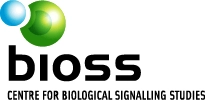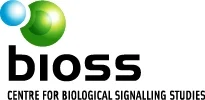Bench and Bed Immunology (BBI) Seminar
Lena Weiß and Hannah Blumtritt attend the Bench and Bed Immunology (BBI) Seminar in Freiburg, which focuses on “Immune mediated diseass and Immunopathology/ Organ Immunity” this year. Both shared their research results in two fantastic talks!! – Congratulations!
The potential of γδ CAR and TRuC T cells: An unearthed treasure
Marina Zintchenko, Trang Nguyen, Wolfgang Schamel and Susana Minguet write a review with colleagues together on “The potential of γδ CAR and TRuC T cells: An unearthed treasure “. Many congratulations to all authors! pubmed.ncbi.nlm.nih.gov/39192467/
7th Upper Rhine Immunology (URI) Meeting in Basel
We enjoyed attending the 7th Upper Rhine Immunology (URI) Meeting in Basel, where early-career researchers from Basel, Karlsruhe, Freiburg, and Strasbourg shared impressive work! Marina Zintchenko, Anna Ehret, Valeria Melendez & Nadine Wössner present fantastic posters and and enjoyed lively discussions! Already looking forward to next year’s meeting in Freiburg!
Sodium chloride in the tumor microenvironment enhances T cell metabolic fitness and cytotoxicity
Trang Nguyen and Wolfgang Schamel are part of the study “Sodium chloride in the tumor microenvironment enhances T cell metabolic fitness and cytotoxicity”. Congratulations to you and all authors on the great story! https://www.nature.com/articles/s41590-024-01918-6
Exploring Cutting-Edge Biological Signalling Research in Freiburg
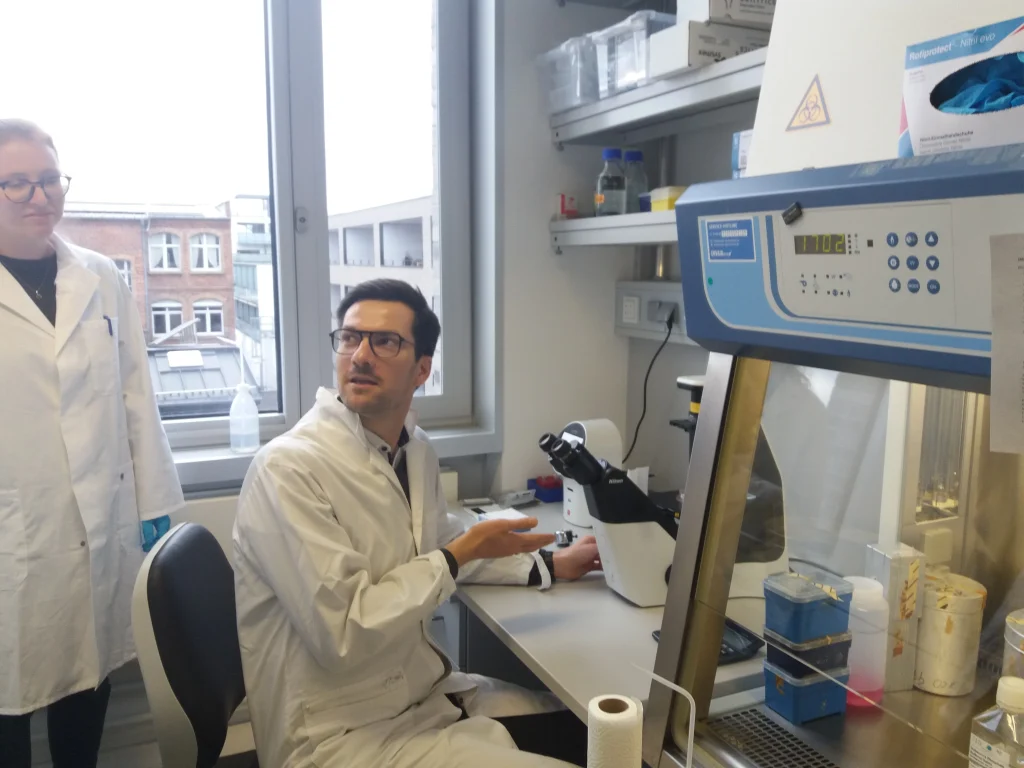
The Lord Mayor of Freiburg, Martin Horn, recently embarked on a visit to the renowned Signalhaus Freiburg, a symbol of research excellence housing the Clusters of Excellence BIOSS (Biological Signalling Studies) and CIBSS (Centre for Integrative Biological Signalling Studies). Accompanied by Ms. Hanna Böhme from Freiburg Wirtschaft Touristik und Messe, they were immersed in the rich tradition of signalling research that Freiburg boasts.
2 new DFG research units at the University of Freiburg
The research unit “UcarE – Urothelial Carcinoma Epigenetics” aims to investigate the biological mechanisms that underlie bladder cancer. The unit’s spokesman is Prof Dr Ian Frew of the Faculty of Medicine and the BIOSS Centre for Biological Signalling Studies of the University of Freiburg. Seven groups in all are taking part in this project. They are researching at the University of Freiburg, RWTH Aachen University and the University of Tübingen. Among other things, the unit’s members would like to set up a biobank that gathers and holds three-dimensional cell cultures of tumours and data from molecular and genetic analyses of them. Using these as a foundation, therapies will be developed that are personally tailored to individual bladder cancer patients.
First joint Open Day of CIBSS and BIOSS
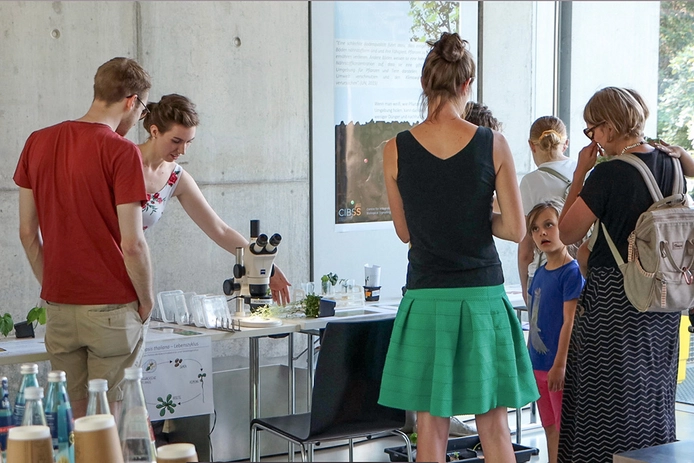
In June, the two Freiburg signalling research centres CIBSS and BIOSS gave visitors insights into current research topics.
Glowing molecules and the memories of plants: At the joint open day of CIBSS and BIOSS, visitors could find out more about the research that happens in the laboratory buildings in Freiburg Herdern. Consisting of a mix of research fair, short talks and hands-on experiments, the programme had something to offer all ages and attracted many interested people to the Signalhaus and Hilde-Mangold-Haus on a sunny day.
Heisenberg Professorship for Susana Minguet García
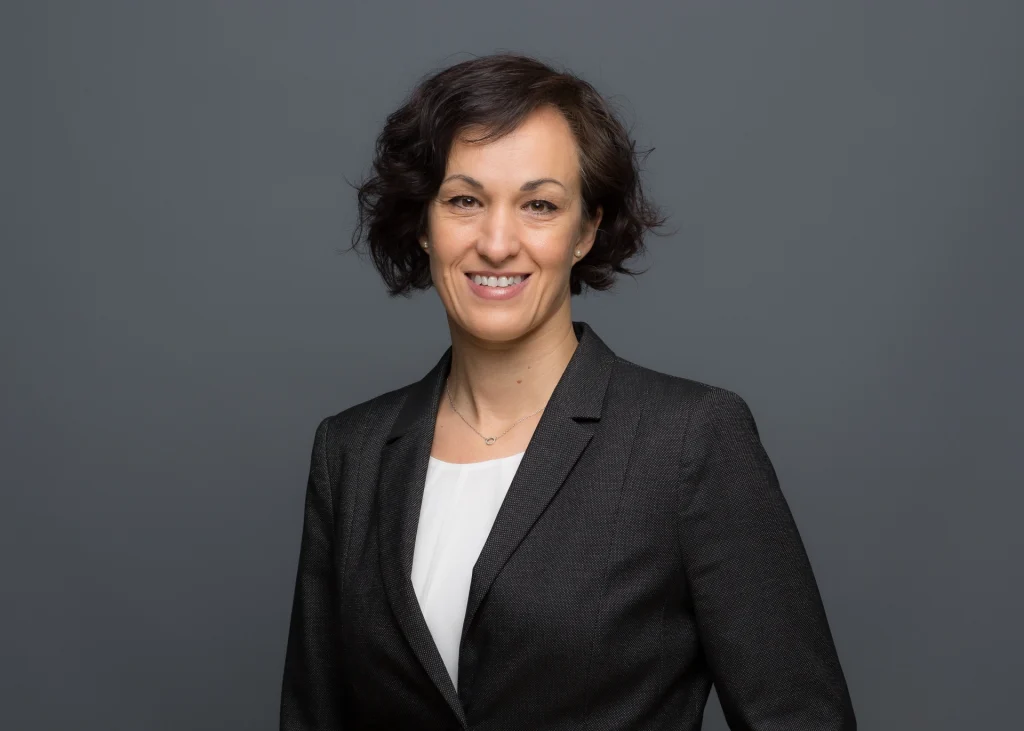
Dr. Susana Minguet García will receive a Heisenberg Professorship from the German Research Foundation (DFG) for Synthetic Immunology on April 1, 2023. The Professorship is based at the Faculty of Biology and at BIOSS at the University of Freiburg. The DFG is also providing around 400,000 Euros in funding for her research into understanding the mechanisms that regulate the activation of T cells. Minguet García is planning to apply this knowledge to contribute to the development of new immunotherapies against cancer and other therapeutic approaches to treat autoimmune diseases and immunopathologies. The DFG funding of the Heisenberg Professorship runs for up to five years and, after a positive interim review, is linked to a permanent professorship at the Faculty of Biology.
Major EU funding set to make leukemia therapies safer
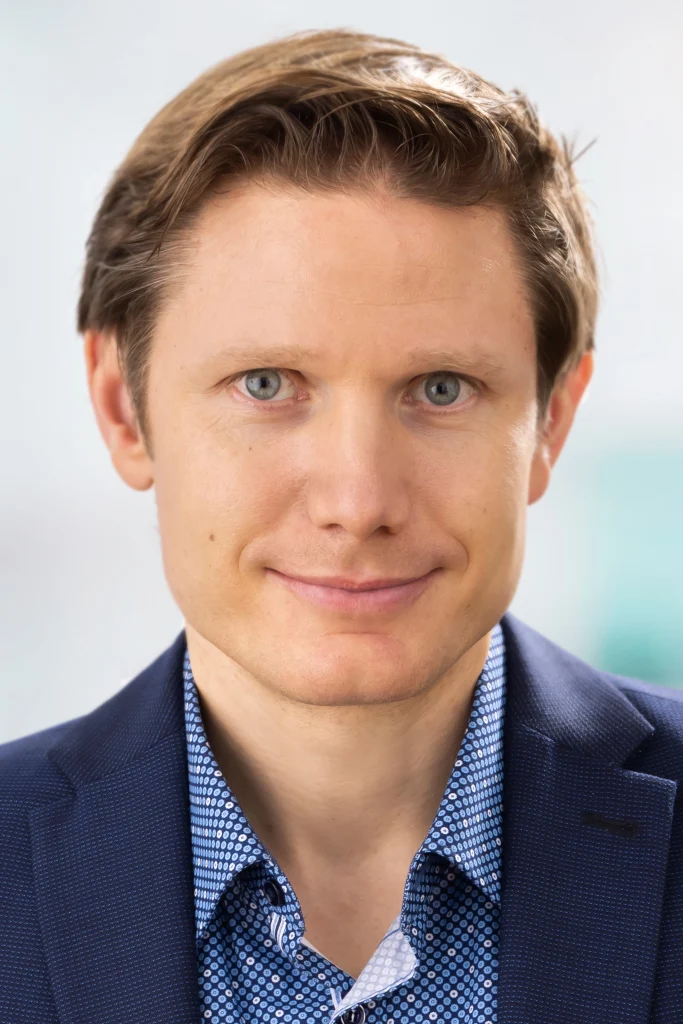
A stem cell donation is a promising therapy for many leukemia patients. But the therapy has risks: It is not uncommon for leukemia to return, and in about half of those treated, the transferred immune cells attack the recipient’s tissue. Such acute graft-versus-host disease, or aGvHD, is just as life-threatening as a possible leukemia relapse. With an ERC Advanced Grant of 2.5 million euros, the European Research Council is funding Prof. Dr. Robert Zeiser from the Faculty of Medicine at the University of Freiburg, who, together with his team, is researching new starting points to improve the healing of patients after stem cell transplantation.
Dean of the Faculty of Biology is new ASM fellow
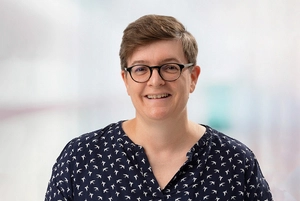
In February, the American Academy of Microbiology (ASM) elected 65 new fellows to the Class of 2023. Among them is Prof. Dr. Sonja-Verena Albers, Dean of the Faculty of Biology and principal investigator of BIOSS at the University of Freiburg. Fellows of the American Academy of Microbiology are elected annually through a highly selective, peer-review process, based on their records of scientific achievement and original contributions that have advanced microbiology.
